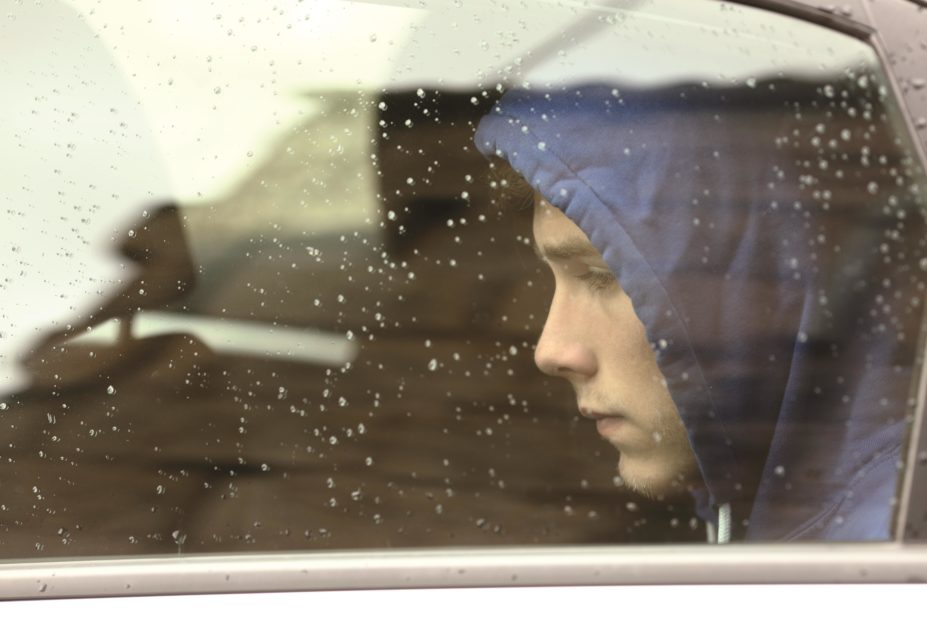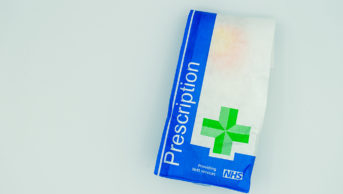
Shutterstock.com
A study has shown that the number of children and adolescents taking antidepressants has increased by more than 50% in the UK between 2005 and 2012, raising possible concerns that doctors may be prescribing these drugs as a way to alleviate pressure on psychotherapy services.
Antidepressant use in young people fell substantially in many countries after the US Food and Drug Administration issued a black box warning in 2004 about the increased risk of suicidal thoughts and behaviour associated with selective serotonin reuptake inhibitors (SSRIs) in patients under the age of 18 years. However, this latest research, published in European Neuropsychopharmacology
[1]
(2016;26:411–419), shows this decline has not been sustained.
Researchers analysed data from Denmark, Germany, the Netherlands, the UK and the United States on antidepressant use in patients aged 0–19 years from 2005 to 2012.
The results showed that prevalence of antidepressant use increased most in the UK and Denmark. Denmark saw the greatest rise, from 0.6% to 1.0% (up 60.5%), and in the UK it rose from 0.7% to 1.1% (up 54.4%). The rise in Germany was almost as high as the UK, from 0.3% to 0.5% (up 49.2%). Prevalence increased by 26.1% in the US (from 1.3% to 1.6%) and by 17.6% in the Netherlands (from 0.5% to 0.6%). The authors say that the reasons for the increases were not clear.
The researchers found no substantial evidence of an increase in the rates of children and adolescents’ mental health conditions, although there was some evidence they were using mental health services more, suggesting that this group may have been undertreated previously. The authors also suggest that limited availability of psychotherapy services might be a factor.
Lucie Russell, director of campaigns at the mental health charity Young Minds, comments on the study: “GPs all too often prescribe antidepressants to young people because they don’t know what else to do. Child and adolescent mental health services are a postcode lottery, with unacceptably long waiting times in many areas, and with a high threshold for treatment because services are overwhelmed.”
Maureen Baker, chair of the Royal College of GPs, said that the vast majority of antidepressants for children and young people are prescribed in secondary care, but that sometimes GPs had no alternative. “Anti-depressants would rarely be the first treatment option for children and young people,” she explains. “But with such long waits for patients to see a specialist or to get a psychological therapy referral, drug therapy is sometimes seen as the only option for GPs to best support patients, who may be in extreme distress.”
SSRIs were the most common type of antidepressants prescribed to young people in all countries, particularly in Denmark, where they made up 81.8% of all antidepressants prescribed. In Germany and the UK, tricyclic antidepressants remained widely used, accounting for 23% and 19.5% of antidepressants prescribed, respectively.
The drugs most frequently prescribed differed between the countries. While citalopram, an SSRI, was first choice in Denmark and in the Netherlands, SSRI fluoxetine was most frequently prescribed in Germany and in the UK. Sertraline was the top ranking antidepressant in the United States. In the UK, Germany and the Netherlands, tricyclic antidepressants, such as amitriptyline, were among the top five prescribed drug types in 2012.
The study also found that several of the most commonly prescribed antidepressants had no approval for use in children or adolescents in their respective country – for example, amitriptyline in Germany and the Netherlands, and bupropion in the UK.
A spokesperson for GlaxoSmithKline, which holds the marketing authorisation for bupropion in the UK, said: “Regardless of age, bupropion is not approved as a treatment for depression in the UK.” Bupropion (Zyban) is approved in the UK as a smoking cessation aid.
A spokesperson for Lilly, which holds the marketing authorisation for several antidepressants, said: “Lilly does not support off-label use of medicines and the decision whether to prescribe medicines must sit with healthcare professionals, based on their clinical expertise, the needs of each individual patient and detailed prescribing information provided about the medicines.”
References
[1] Bachmann C, Aagaard L, Burcu M et al. Trends and patterns of antidepressant use in children and adolescents from five western countries, 2005-2012. Eur Neuropsychopharmacol 2016; doi: 10.1016/j.euroneuro.2016.02.001.


